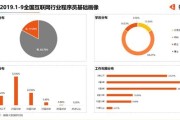Title: Unveiling the Role of a Big Data Engineer in Modern Data Ecosystems
In today's datadriven world, the role of a Big Data Engineer is paramount in leveraging the vast amounts of data generated every day. From designing data pipelines to implementing scalable solutions, Big Data Engineers play a pivotal role in ensuring that organizations can harness the power of data effectively. Let's delve into the realm of Big Data Engineering and explore the key responsibilities, skills, and technologies involved.
Key Responsibilities of a Big Data Engineer:
1.
Data Pipeline Development:
Big Data Engineers are responsible for designing, building, and maintaining robust data pipelines that efficiently process and transfer large volumes of data from various sources to storage and analytics platforms.
2.
Data Warehousing:
They design and implement data warehousing solutions that facilitate the storage, organization, and retrieval of structured and unstructured data for analysis and reporting purposes.
3.
Data Processing and Transformation:
Big Data Engineers develop algorithms and workflows for processing and transforming raw data into usable formats, applying techniques such as ETL (Extract, Transform, Load) to ensure data quality and consistency.
4.
Scalability and Performance Optimization:
They optimize data infrastructure and systems for scalability, performance, and costeffectiveness, leveraging technologies like distributed computing frameworks (e.g., Hadoop, Spark) and cloudbased services (e.g., AWS, Azure).
5.
Data Governance and Security:
Big Data Engineers implement data governance policies and security measures to ensure compliance with regulations and protect sensitive information from unauthorized access or breaches.
6.
Collaboration with Data Scientists and Analysts:
They collaborate with data scientists and analysts to understand data requirements, develop data models, and deploy machine learning models or analytics solutions into production environments.
Essential Skills for Big Data Engineers:
1.
Programming Languages:
Proficiency in languages such as Python, Java, Scala, or R is essential for developing data processing algorithms, scripts, and applications.
2.
Big Data Technologies:
Familiarity with big data technologies and frameworks like Hadoop, Spark, Kafka, HDFS, Hive, and HBase is crucial for building scalable and distributed data processing systems.
3.
Database Management:
Knowledge of databases such as SQL, NoSQL, and NewSQL is necessary for designing and optimizing data storage solutions and querying large datasets efficiently.
4.
Cloud Platforms:
Experience with cloud platforms like AWS, Azure, or Google Cloud is increasingly important for deploying and managing big data infrastructure and services in scalable and costeffective ways.
5.
Data Modeling and Analysis:
Understanding of data modeling techniques, statistical analysis, and machine learning concepts enables Big Data Engineers to develop effective data processing and analytics solutions.
6.
ProblemSolving and Troubleshooting:
Strong problemsolving skills and the ability to troubleshoot complex issues are essential for diagnosing and resolving performance bottlenecks, system failures, and data inconsistencies.
Guidance for Aspiring Big Data Engineers:
1.
Continuous Learning:
Stay updated with the latest trends, technologies, and best practices in the field of big data engineering through online courses, workshops, and industry conferences.

2.
Handson Experience:
Gain practical experience by working on realworld projects, participating in hackathons, or contributing to opensource big data projects to strengthen your skills and portfolio.
3.
Networking:
Build professional connections with peers, mentors, and industry experts through online forums, meetups, and professional networking platforms to exchange knowledge and opportunities.
4.
Certifications:
Consider pursuing relevant certifications such as Cloudera Certified Professional (CCP), AWS Certified Big Data Specialty, or Microsoft Certified: Azure Data Engineer Associate to validate your expertise and enhance your credibility.
5.
Soft Skills:
Develop strong communication, collaboration, and problemsolving skills to effectively interact with crossfunctional teams and stakeholders and drive successful outcomes.
In conclusion, Big Data Engineers play a vital role in the success of organizations by designing, building, and maintaining data infrastructure and systems that enable datadriven decisionmaking and innovation. By acquiring the necessary skills, staying updated with emerging technologies, and embracing continuous learning, aspiring Big Data Engineers can embark on a rewarding career journey in the dynamic field of big data engineering.



